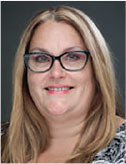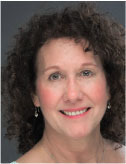Case management has been here for decades, and many of us learned from on-the-job training. We worked cases in workers’ comp, hospice, acute care and many more areas. However, how many of us know about the effects becoming a widow or widower has on a person? Perhaps we don’t realize this until it happens to us or a close relative or friend. Case management for this group appears to be sporadic, almost non-existent.
When a loved one is lost, most will experience grief, which is a feeling of sadness or sorrow and is usually caused by the loss of someone. Grief is not always caused by death but could also be experienced by those who have been divorced or are expecting a loss or death.
Grief can cause a multitude of physical ailments such as heart problems, lowered immunity, body aches and pains, digestive issues, unhealthy coping mechanisms and sleep problems and fatigue. It can also trigger a number of mental health symptoms and issues that may include depression, loneliness and anxiety: “The line between the grief period and mental health issue may be hard to define. It can help to consult a trusted therapist or counselor” (1).
This is one area in which a case manager can be vital. The person experiencing grief, a loss, may not know who to turn to. They may feel that asking for help is a sign of weakness, that they can handle this on their own. The case manager can be there to listen, lend a shoulder and, when ready, find the resources needed to offer help to the grieving person.
University Hospitals in Cleveland wrote in 2018 that “we have all heard the tales of long-time spouses dying within days of each other. They die of a broken heart” (2). Dying of a broken heart is not a medical condition, but the “passing of one spouse increases the risk of the remaining spouse dying – has been well documented and has been termed the Widowhood Effect” (2). This term refers to an increase in mortality in the first 3 to 6 months after a spouse dies. The signs of broken heart syndrome, also called stress-induced cardiomyopathy or takotsubo cardiomyopathy, are similar to those of angina or a heart attack. The difference is noted in electrocardiogram results, which will show changes from baseline but not ischemia that would be seen in a heart attack. Echocardiograms show signs of enlargement of the left lower chamber or left ventricular hypertrophy (3).
How can a case manager help? Understanding the physical health and mental health implications of widowhood allows case managers to advocate for clients. The goal should be to promote wellness and minimize hospitalizations. The case manager will need to be comfortable being around someone who is grieving, ask some difficult questions and be there for the person. The case manager also wants to use their talent of observation. What, if any, physical signs is the person exhibiting? Is there difficulty breathing? Are they having chest pains, or do you notice any pill bottles around the room? Have they taken their prescribed medication?
Create a care plan and client education that promotes self-care, wellness, emotional well-being and social support. Follow up to ensure medical and behavioral health appointments have been scheduled and completed. Use motivational interviewing and assess if/when the person is ready to change. There is no timeline for grief. Update and change the care plan based on the widow’s changing needs, such as financial, housing or food insecurity due to loss of income, as the Veterans Administration and Social Security will not pay the month of death and pension plans average 3-6 months before payment is received (4). “This was something I was not expecting after my husband passed away. While I was on the phone with the VA notifying them of my husband’s death, they went through their scripting of condolences for the death, then informed me they were withdrawing money from our bank account as we were not entitled to payment for the month of death,” states Tami Wantola. “For an administration whose mission is ‘to care for those “who shall have borne the battle” and for their families, caregivers and survivors,’ I could not have been more shocked or stunned by their lack of support.”
Social support has been shown to be beneficial for those suffering from grief. Social support resources include Griefshare, hospice support groups and/or community groups from organizations such as Soaring Sprits International or Modern Widows Club (5). Ask the client if they have thought about hurting themselves. Then be prepared to take action. Do they need to seek a counselor? Provide education on when to seek help and how to seek help. Do they need to be admitted for observation, especially if they are contemplating hurting themselves? Do they need to see their primary care physician for medications? Provide them with resources for the 988 Suicide and Crisis hotline.
Working with widows/widowers will allow the case manager to do some internal questioning during their preparate time. Can I handle this? Will I be able to be comfortable talking about death and watching the person cry? Will I freak out if the person mentions they are contemplating suicide, and will I know what to do? Once the case manager is able to strengthen themselves, it is time to use motivational interviewing. Using open-ended questions and knowing when to pause, project and reflect can be strong weapons. The use of your own private toolbox as well as those of your colleagues can be your best friend. As the case manager, don’t be reluctant to reach out to your colleagues for help.
Those case managers working in the hospice or palliative care arena should begin these conversations with the family early. Discuss anticipatory grief and what the next steps may look like. Many families just want to spend time with their loved ones, and this is where follow-up care is essential. Once the family member has passed, is it your workflow to follow up with the family? Assess how they are doing and perhaps re-visit the aftercare that is available to them.
Another step in this process, one that is usually overlooked, is estate administration. This could be difficult if the loss was unexpected or if they were young or never thought about their estate. A case manager may not be educated in this topic but will need to know who to refer their client to. Estate administration is an arduous process. With or without a will, depending on state laws, probate may be involved. According to Tami Wantola, “There are so many unnecessary hoops to jump through in estate administration. During the most stressful time of your life, widows are victimized by the system that should be protecting them. Probate, community property and surviving spouse laws need to change to protect the vulnerable.” Funeral homes often provide the surviving spouse with a checklist of tasks to do. Inquire how the client is managing the checklist. Based on the answers, it may be helpful to provide feedback to take a pause from the list, practice self-care and seek assistance from support groups.
When you step back and think about it, helping someone who has lost a loved one is not different from any other form of case management. The difficulty lies in knowing when to take action, knowing what resources are available and being comfortable in dealing with silence as you are with that person as well as asking those difficult questions and being able to answer them. If you are unable to answer them, let your client know, but also let them know you will find out for them.





